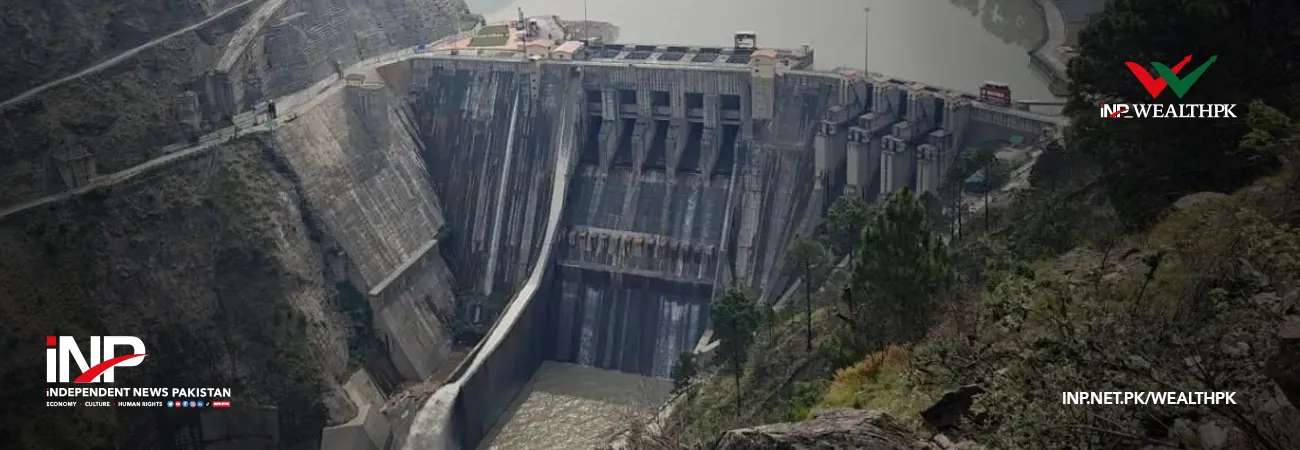INP-WealthPk
Ayesha Saba

There has been a significant endorsement of the Public-Private Partnership (PPP) model by policymakers to enhance the country's economic health, but it is also imperative to recognize that achieving substantial growth requires concerted efforts and comprehensive planning. Talking to WealthPK, Dr. Nadeemul Haq, former deputy chairman of the Planning Commission and Vice-Chancellor of the Pakistan Institute of Development Economics (PIDE), emphasized the critical importance of effective implementation of the Public Sector Development Programme (PSDP) for Pakistan's socioeconomic development. “The PSDP, while well-intentioned, often faces challenges such as bureaucratic delays, funding constraints, and insufficient technical expertise within governmental agencies. These factors collectively hamper the timely execution and quality of projects crucial for economic growth and infrastructure development.”
Moreover, he highlighted successful international examples where PPPs catalyzed infrastructure development and economic growth. “Countries like Singapore and Malaysia have effectively utilized PPP frameworks to build world-class infrastructure while managing fiscal responsibilities prudently.” Talking to WealthPK, Dr. Sajid Amin, an eminent economist and Deputy Executive Director of the Sustainable Development Policy Institute (SDPI), a think tank, said Pakistan was once set to become an Asian tiger, but the country had unfortunately been mired in cycles of booms and busts. “This cyclical growth has been a significant barrier to achieving the long-term goal of becoming a middle-income country.” He emphasized that political stability and consistent policies were crucial for fostering investor confidence.
“Frequent changes in government and policies have discouraged private sector participation, impeding the success of PPP initiatives.” He said that the ineffective management of public monies, combined with a lack of transparency and accountability, frequently led to leakages. “PPPs offer a promising path for Pakistan's infrastructure development. However, this journey comes with challenges. Addressing regulatory complexities, ensuring policy consistency, and building the necessary skills and capacities are essential for unlocking the full potential of the model,” he noted. An official of the Public-Private Partnership Authority (P3A) told WealthPK on condition of anonymity that Pakistan demonstrated robust support for PPPs at both the federal and provincial levels.
“Consequently, provincial governments bear the primary responsibility for developing and implementing their own PPP policies and legislation.” He said that the governments of Punjab, Sindh, and Khyber Pakhtunkhwa had initiated significant development projects within their respective PPP jurisdictions, launching various initiatives in sectors such as energy, urban management, transportation infrastructure, and environmental conservation. He maintained that the National Highways Authority and Pakistan Railways had undertaken numerous mega projects under the PPP mechanism. However, he cautioned that the PPP model in Pakistan was still in its early stages of development, indicating that it would require time to evolve and mature. “Despite its nascent state, there is a strong belief that the PPP model holds significant long-term benefits.”
According to the budget documents, the government has allocated Rs3.792 trillion under the PSDP for the ongoing fiscal year 2024-25, which represents a staggering 58% increase from the Rs2.39 trillion allocated for FY24. Of the total, Rs2.095 trillion have been allocated to provincial PSDP, compared to Rs1.56 trillion in the outgoing year. The remaining Rs1.4 trillion will be spent on the federal PSDP, with another Rs100 billion to be spent under the PPP mode. An amount of Rs196.8 billion will be spent by the state-owned enterprises on various development projects.
Credit: INP-WealthPk













